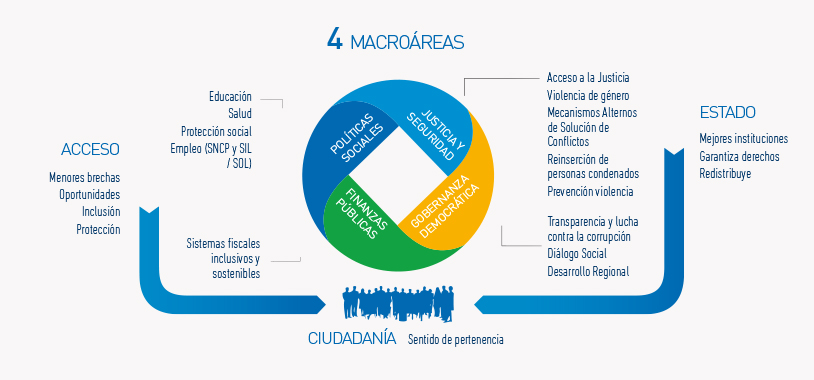Macro work areas
The network of themes that the programme works with is organised around the main objective of EUROsociAL: the promotion of social cohesion.
From this starting point, and taking into account the common priorities and preferences of the countries, arise the themes or actions that EUROsociAL addresses, 14 in total, grouped in four major areas or strategic axes:
- Social Policies: Social Policy is the most explicit and direct manner in which the State reduces social inequality—and therefore builds social cohesion—by offering productive opportunities, developing individual skills and ensuring protection for all. This macro area is made up of the areas of Social Protection, Employment, Health and Education.
- Inclusive Tax Systems One essential aspect for ensuring inclusion and cohesion is the financing of public policies. In keeping with this, public finance (on both the revenue and the expenditure side) was considered another key macro area for intervention by the Programme.
- Democratic Governance Improving democratic governance in a country is perhaps a less tangible and more complex mechanism than social policies, but one that is equal in importance and effective for building social cohesion. This area groups the areas of Democratic Institutions, Social Dialogue and Regional Development.
- Justice and Security: Justice and Security are framed as the fourth macro area of intervention. Although they are considered essential for democratic governance, these areas have sufficient weight within the Programme, both in terms of the volume of resources they mobilise and the number of actions that comprise them, to be constituted as a macro area for autonomous intervention.
This apparently simple classification encompasses multiple dimensions with which to work, often in an intersectoral manner, addressing complex problems from different perspectives and approaches.

